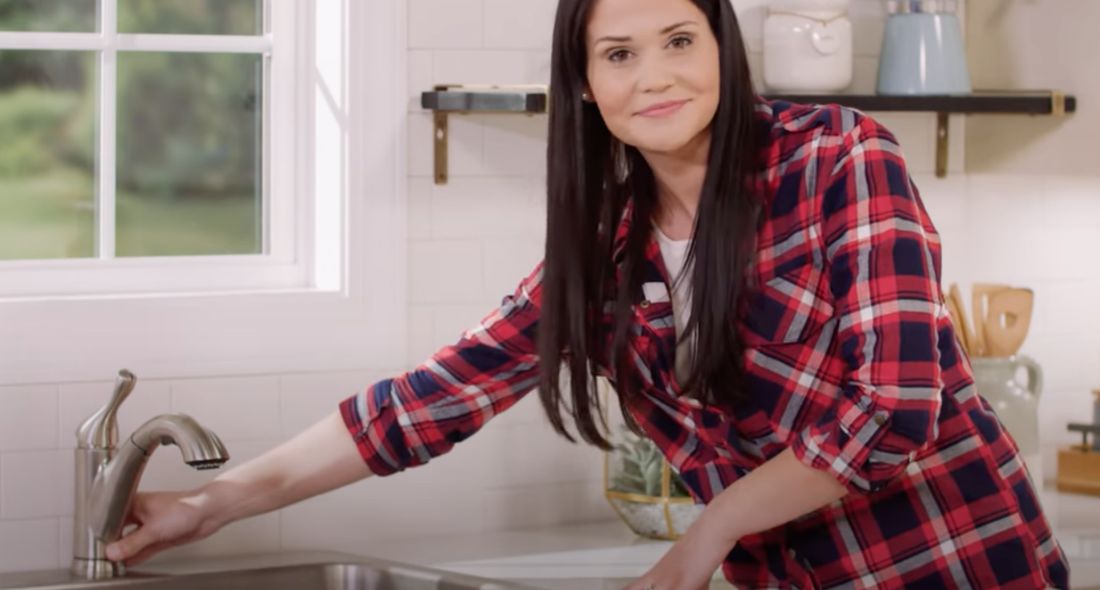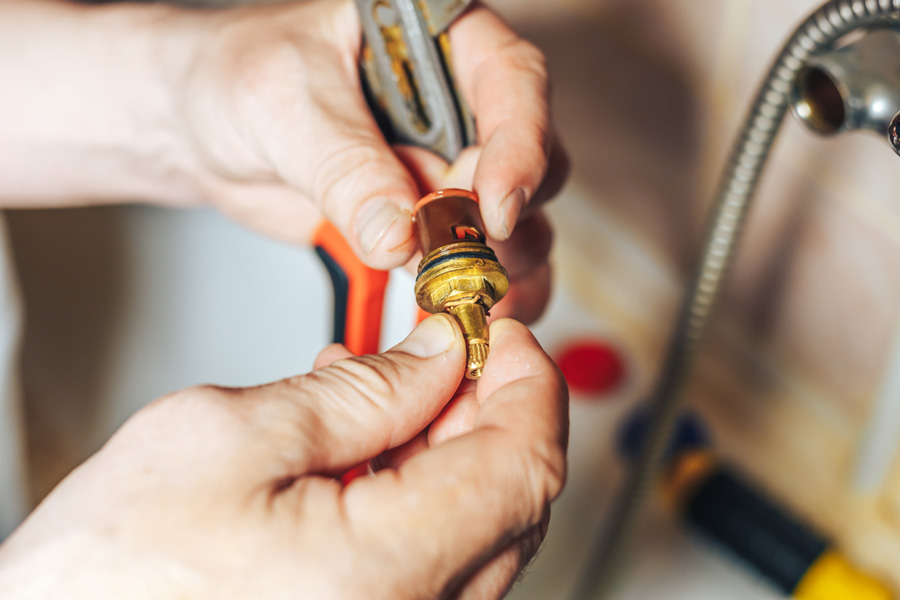An Explanations Behind Repairing a Leaking Faucet
An Explanations Behind Repairing a Leaking Faucet
Blog Article
Any individual has their own unique assumption involving Should I Repair or Replace a Leaky Faucet?.

Dripping taps could seem like a small aggravation, however their influence exceeds simply the inconvenience of the noise. From drainage to incurring unnecessary monetary costs and wellness threats, ignoring a dripping faucet can result in various consequences. In this article, we'll delve into why it's essential to address this common house concern immediately and efficiently.
Waste of Water
Environmental Influence
Trickling faucets contribute significantly to water wastefulness. According to the Environmental Protection Agency (EPA), a single faucet trickling at one drip per second can squander greater than 3,000 gallons of water each year. This not only strains water sources however also influences ecological communities and wild animals dependent on them.
Step-by-Step Guide to Dealing With a Dripping Faucet
Tools Needed
Before trying to repair a dripping tap, gather the essential tools, consisting of a flexible wrench, screwdrivers, replacement components (such as washers or cartridges), and plumber's tape.
Usual Faucet Issues and Their Solutions
Identify the kind of faucet and the certain issue creating the drip. Typical troubles include damaged washers, rusty valve seats, or damaged O-rings. Refer to manufacturer directions or online tutorials for detailed guidance on repair services.
Financial Costs
Boosted Water Bills
Beyond the ecological impact, trickling taps can pump up water costs substantially. The gathered wastage with time translates right into greater utility costs, which can have been avoided with prompt fixings.
Prospective Building Damage
Moreover, long term leaking can bring about damage to fixtures and surface areas surrounding the faucet. Water build-up can create staining, rust, and also architectural concerns if left ignored, causing additional repair service prices.
Health Issues
Mold And Mildew and Mold Development
The consistent presence of wetness from a leaking tap develops an ideal atmosphere for mold and mildew and mold development. These fungis not just compromise indoor air quality however likewise posture wellness risks, particularly for individuals with respiratory problems or allergic reactions.
Waterborne Diseases
Stagnant water in dripping faucets can become a breeding ground for bacteria and other pathogens, enhancing the risk of waterborne diseases. Contaminants such as Legionella bacteria thrive in stagnant water, potentially resulting in serious diseases when ingested or inhaled.
Do it yourself vs. Specialist Fixing
Benefits and drawbacks of Do It Yourself Fixing
While some might attempt to repair a dripping faucet themselves, DIY fixings feature their very own collection of difficulties. Without appropriate knowledge and tools, do it yourself efforts can worsen the problem or lead to incomplete fixings, lengthening the issue.
Benefits of Working With an Expert Plumber
Employing a professional plumber ensures that the underlying source of the leaking faucet is resolved successfully. Plumbing technicians possess the proficiency and tools to identify and repair tap problems efficiently, conserving time and reducing the risk of more damage.
Ecological Obligation
Individual Payment to Conservation
Taking duty for repairing dripping taps aligns with wider efforts towards water conservation and ecological sustainability. Every individual's activities collectively make a considerable impact on maintaining valuable sources.
Sustainable Living Practices
By focusing on punctual repair work and taking on water-saving practices, people contribute to lasting living practices that profit both existing and future generations.
Preventive Measures
Normal Maintenance Tips
To avoid dripping faucets, execute routine upkeep such as cleaning aerators, checking for leaks, and replacing damaged components quickly. In addition, consider setting up water-saving tools or upgrading to much more reliable fixtures.
Significance of Prompt Fixes
Dealing with leaking taps as soon as they're discovered protects against further water waste and possible damages, ultimately saving both water and cash in the future.
Impact on Home Worth
Assumption of Well-Maintained Home
Keeping a residential or commercial property in good condition, including attending to upkeep concerns like dripping faucets, enhances its viewed value and value among prospective purchasers or occupants.
Impact on Resale Worth
Characteristics with well-maintained plumbing fixtures, including faucets, command higher resale values in the real estate market. Dealing with dripping faucets can contribute to a positive impression during property inspections and settlements.
Final thought
Dealing with a leaking faucet goes beyond plain ease; it's a crucial action towards saving water, decreasing financial costs, and guarding wellness and building. Whether via do it yourself repair work or professional assistance, doing something about it to deal with leaking faucets is a small yet impactful means to promote responsible stewardship of sources and add to a healthier, more lasting future.
How to Fix a Leaky Faucet: Step-by-Step Repair Guide
A leaky faucet may seem like a simple annoyance, but if it's not fixed promptly, that leak could cost hundreds to potentially thousands. From water damage to mold, mildew, and high water bills, even a tiny leak can be catastrophic if left unattended. Damage like this can even affect the overall value of your home, so it's important to take the right approach for leaky faucet repair. You may need the help of a plumber in some cases, but we've got a few tips you can try on how to fix a leaky faucet before calling the pros.
Four Faucet Types
When you're learning how to fix a leaky faucet, the first step is knowing what kind of faucet you're working with! There are four common types.
Cartridge Faucets
Cartridge faucets come in one- or two-handled varieties. In one-handled cartridge faucets, hot and cold water combines in a single cartridge. In the two-handled versions, hot and cold water are controlled separately and mixed in the faucet.
Ball Faucets
Ball faucets have a single lever you push up and down to adjust the pressure and rotate to change the temperature. A slotted metal ball controls the amount of water allowed into the spout.
Compression Washer Faucets
They're the oldest type of faucet, but they're still used in many homes — especially older ones. Compression faucets have two separate handles that, when turned, raise or lower the washer that seals a water valve. This valve stops water from flowing through the faucet when it is turned off.
Disc Faucets
Disc faucets rarely need to be repaired due to their maintenance-free design. The water flow is controlled by two discs — the upper one raises and lowers against a fixed lower disc, creating a watertight seal. If your disc faucet starts leaking, you may need to replace the seals or clean residue buildup from the inlets.
Fixing a Leaky Faucet
Step 1: Turn Off the Water
Whether you're learning how to fix a leaky bathtub faucet or how to fix a leaky kitchen faucet, always turn off the water supply to your working area when you're fixing a leak. The last thing you want is a flood added to your list of things to fix.
Look for the shutoff valves below your sink or around the tub and turn them clockwise to stop the water flow. If your faucet doesn't have shutoff valves, you may need to turn off the water for the whole house. Check to make sure it's off by turning the faucet on. If nothing comes out, you're ready to start the repair.
Step 2: Take Apart the Faucet
How you disassemble your faucet depends on the type of fixture you have. You can use a flathead screwdriver to remove the caps on top of the handle or handles for cartridge and compression faucets. Inside, you should see handle screws. Unscrew these with a screwdriver to remove the handle.
Disc- and ball-style faucets will typically have an inlet screw near the handle, and removing that will reveal the interior of the faucet.
Detach the Valve Stem
For cartridge- and compression-style faucets, you'll see the inner valve stem or cartridge once you remove the faucet handles. If you have a compression faucet, unscrew the brass valve stem. If you have a cartridge faucet, pull out the cartridge. If your cartridge has been in place for a while, it may require some tools or extra force to remove it due to mineral deposits.
Examine and Replace Parts
Once you've removed the parts, check them out to confirm what needs to be replaced. You may see corroded rubber washers, O-rings, stems, or cartridges. On a ball-style faucet, check the seats and springs for damage.
If you need to repair a leaky disc faucet, check the inlet and seals on the lower disc.
Once you determine what parts must be replaced, visit your local hardware store. Bring the damaged parts with you to ensure you can purchase the correct components to replace them.
Clean Valves and Faucet Cavity
If you've removed a stem or cartridge, you may notice mineral buildup in the faucet's threads. Use white vinegar to clean the valve seat by soaking it for a few minutes, then scrub it away with a soft toothbrush and rinse with warm water. You can also clean the interior of the faucet in the same way.
Reassemble the Faucet
Once your faucet is cleaned and the required parts have been replaced, it's time to reassemble it. Put the pieces back together and slowly turn the water supply back on. Doing this slowly is crucial because too much initial water pressure can damage the new hardware you've just installed.
https://homewarranty.firstam.com/blog/how-to-fix-leaky-faucet

I am very focused on What Causes Leaky Faucets & How To Fix Them and I am assuming you enjoyed reading the blog post. Appreciated our review? Please quickly share it. Help other people find it. Thanks a bunch for your time. Don't forget to visit our blog back soon.
Report this page